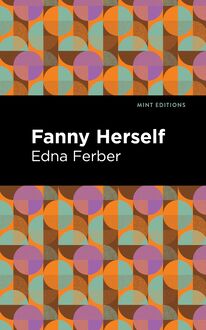-
 Univers
Univers
-
 Ebooks
Ebooks
-
 Livres audio
Livres audio
-
 Presse
Presse
-
 Podcasts
Podcasts
-
 BD
BD
-
 Documents
Documents
-
- Cours
- Révisions
- Ressources pédagogiques
- Sciences de l’éducation
- Manuels scolaires
- Langues
- Travaux de classe
- Annales de BEP
- Etudes supérieures
- Maternelle et primaire
- Fiches de lecture
- Orientation scolaire
- Méthodologie
- Corrigés de devoir
- Annales d’examens et concours
- Annales du bac
- Annales du brevet
- Rapports de stage
La lecture à portée de main
Vous pourrez modifier la taille du texte de cet ouvrage
Découvre YouScribe en t'inscrivant gratuitement
Je m'inscrisDécouvre YouScribe en t'inscrivant gratuitement
Je m'inscrisEn savoir plus
Vous pourrez modifier la taille du texte de cet ouvrage
En savoir plus

Description
Grandchildren of the Ghetto (1892) is a novel by Israel Zangwill. Raised in London by parents from Latvia and Poland, Zangwill understood the plight of the city’s Jewish community firsthand. Having risen through poverty to become an educator and author, he dedicated his career to the voiceless, the oppressed, and the needy, advocating for their rights and bearing witness to their suffering in some of the most powerful novels and stories of the Victorian era. “People who have been living in a Ghetto for a couple of centuries, are not able to step outside merely because the gates are thrown down, nor to efface the brands on their souls by putting off the yellow badges. The isolation imposed from without will have come to seem the law of their being.” As a Jewish immigrant who grew up in poverty in London, Israel Zangwill knows that the condition of life in the ghetto changes not just lives, but mentalities. Even if the Jews living in squalor on the East End of London were given the same rights as native Britons, they would still live with fear and doubt every day of their lives. In the second novel of his Ghetto series, Zangwill explores the day-to-day existence of these very people, illuminating their hopes and their dreams, illustrating their struggle to uphold traditions threatened by assimilation and the increasing secularism of modern life. A new generation experiences wealth and comfort beyond the wildest dreams of those who came before them. But what will they do with their newfound privilege? The tales of Jewish life in Grandchildren of the Ghetto earned Zangwill comparisons to Dickens upon publication and helped to establish him as an author with a gift for intensive character study and a passion for political themes. With a beautifully designed cover and professionally typeset manuscript, this edition of Israel Zangwill’s Grandchildren of the Ghetto is a classic of British literature reimagined for modern readers.
Sujets
Informations
| Publié par | Mint Editions |
| Date de parution | 12 octobre 2021 |
| Nombre de lectures | 0 |
| EAN13 | 9781513214467 |
| Langue | English |
| Poids de l'ouvrage | 2 Mo |
Informations légales : prix de location à la page 0,0500€. Cette information est donnée uniquement à titre indicatif conformément à la législation en vigueur.
Extrait
Grandchildren of the Ghetto
Israel Zangwill
Grandchildren of the Ghetto was first published in 1892.
This edition published by Mint Editions 2021.
ISBN 9781513216461 | E-ISBN 9781513214467
Published by Mint Editions ®
minteditionbooks.com
Publishing Director: Jennifer Newens
Design & Production: Rachel Lopez Metzger
Project Manager: Micaela Clark
Typesetting: Westchester Publishing Services
C ONTENTS
I . T HE C HRISTMAS D INNER
II . R APHAEL L EON
III . “ T HE F LAG OF J UDAH”
IV . T HE T ROUBLES OF AN E DITOR
V . A W OMAN’S G ROWTH
VI . C OMEDY OR T RAGEDY?
VII . W HAT THE Y EARS B ROUGHT
VIII . T HE E NDS OF A G ENERATION
IX . T HE F LAG F LUTTERS
X . E STHER DEFIES THE U NIVERSE
XI . G OING H OME
XII . A S HEAF OF S EQUELS
XIII . T HE D EAD M ONKEY A GAIN
XIV . S IDNEY S ETTLES D OWN
XV . F ROM S OUL TO S OUL
XVI . L OVE’S T EMPTATION
XVII . T HE P RODIGAL S ON
XVIII . H OPES AND D REAMS
I
T HE C HRISTMAS D INNER
D aintily embroidered napery, beautiful porcelain, Queen Anne silver, exotic flowers, glittering glass, soft rosy light, creamy expanses of shirt-front, elegant low-necked dresses—all the conventional accompaniments of Occidental gastronomy.
It was not a large party. Mrs. Henry Goldsmith professed to collect guests on artistic principles—as she did bric- à -brac—and with an eye to general conversation. The elements of the social salad were sufficiently incongruous tonight, yet all the ingredients were Jewish.
For the history of the Grandchildren of the Ghetto, which is mainly a history of the middle-classes, is mainly a history of isolation. “The Upper Ten” is a literal phrase in Judah, whose aristocracy just about suffices for a synagogue quorum. Great majestic luminaries, each with its satellites, they swim serenely in the golden heavens. And the middle-classes look up in worship and the lower-classes in supplication. “The Upper Ten” have no spirit of exclusiveness; they are willing to entertain royalty, rank and the arts with a catholic hospitality that is only Eastern in its magnificence, while some of them only remain Jews for fear of being considered snobs by society. But the middle-class Jew has been more jealous of his caste, and for caste reasons. To exchange hospitalities with the Christian when you cannot eat his dinners were to get the worse of the bargain; to invite his sons to your house when they cannot marry your daughters were to solicit awkward complications. In business, in civic affairs, in politics, the Jew has mixed freely with his fellow-citizens, but indiscriminate social relations only become possible through a religious decadence, which they in turn accelerate. A Christian in a company of middle-class Jews is like a lion in a den of Daniels. They show him deference and their prophetic side.
Mrs. Henry Goldsmith was of the upper middle-classes, and her husband was the financial representative of the Kensington Synagogue at the United Council, but her swan-like neck was still bowed beneath the yoke of North London, not to say provincial, Judaism. So tonight there were none of those external indications of Christmas which are so frequent at “good” Jewish houses; no plum-pudding, snapdragon, mistletoe, not even a Christmas tree. For Mrs. Henry Goldsmith did not countenance these coquettings with Christianity. She would have told you that the incidence of her dinner on Christmas Eve was merely an accident, though a lucky accident, in so far as Christmas found Jews perforce at leisure for social gatherings. What she was celebrating was the feast of Chanukah—of the re-dedication of the Temple after the pollutions of Antiochus Epiphanes—and the memory of the national hero, Judas Maccabaeus. Christmas crackers would have been incompatible with the Chanukah candles which the housekeeper, Mary O’Reilly, forced her master to light, and would have shocked that devout old dame. For Mary O’Reilly, as good a soul as she was a Catholic, had lived all her life with Jews, assisting while yet a girl in the kitchen of Henry Goldsmith’s father, who was a pattern of ancient piety and a prop of the Great Synagogue. When the father died, Mary, with all the other family belongings, passed into the hands of the son, who came up to London from a provincial town, and with a grateful recollection of her motherliness domiciled her in his own establishment. Mary knew all the ritual laws and ceremonies far better than her new mistress, who although a native of the provincial town in which Mr. Henry Goldsmith had established a thriving business, had received her education at a Brussels boarding-school. Mary knew exactly how long to keep the meat in salt and the heinousness of frying steaks in butter. She knew that the fire must not be poked on the Sabbath, nor the gas lit or extinguished, and that her master must not smoke till three stars appeared in the sky. She knew when the family must fast, and when and how it must feast. She knew all the Hebrew and jargon expressions which her employers studiously boycotted, and she was the only member of the household who used them habitually in her intercourse with the other members. Too late the Henry Goldsmiths awoke to the consciousness of her tyranny which did not permit them to be irreligious even in private. In the fierce light which beats upon a provincial town with only one synagogue, they had been compelled to conform outwardly with many galling restrictions, and they had sub-consciously looked forward to emancipation in the mighty metropolis. But Mary had such implicit faith in their piety, and was so zealous in the practice of her own faith, that they had not the courage to confess that they scarcely cared a pin about a good deal of that for which she was so solicitous. They hesitated to admit that they did not respect their religion (or what she thought was their religion) as much as she did hers. It would have equally lowered them in her eyes to admit that their religion was not so good as hers, besides being disrespectful to the cherished memory of her ancient master. At first they had deferred to Mary’s Jewish prejudices out of good nature and carelessness, but everyday strengthened her hold upon them; every act of obedience to the ritual law was a tacit acknowledgment of its sanctity, which made it more and more difficult to disavow its obligation. The dread of shocking Mary came to dominate their lives, and the fashionable house near Kensington Gardens was still a veritable centre of true Jewish orthodoxy, with little or nothing to make old Aaron Goldsmith turn in his grave. It is probable, though, that Mrs. Henry Goldsmith would have kept a kosher table, even if Mary had never been born. Many of their acquaintances and relatives were of an orthodox turn. A kosher dinner could be eaten even by the heterodox; whereas a tripha dinner choked off the orthodox. Thus it came about that even the Rabbinate might safely stoke its spiritual fires at Mrs. Henry Goldsmith’s.
Hence, too, the prevalent craving for a certain author’s blood could not be gratified at Mrs. Henry Goldsmith’s Chanukah dinner. Besides, nobody knew where to lay hands upon Edward Armitage, the author in question, whose opprobrious production, Mordecai Josephs , had scandalized West End Judaism.
“Why didn’t he describe our circles?” asked the hostess, an angry fire in her beautiful eyes. “It would have, at least, corrected the picture. As it is, the public will fancy that we are all daubed with the same brush: that we have no thought in life beyond dress, money, and solo whist.”
“He probably painted the life he knew,” said Sidney Graham, in defence.
“Then I am sorry for him,” retorted Mrs. Goldsmith. “It’s a great pity he had such detestable acquaintances. Of course, he has cut himself off from the possibility of any better now.”
The wavering flush on her lovely face darkened with disinterested indignation, and her beautiful bosom heaved with judicial grief.
“I should hope so,” put in Miss Cissy Levine, sharply. She was a pale, bent woman, with spectacles, who believed in the mission of Israel, and wrote domestic novels to prove that she had no sense of humor. “No one has a right to foul his own nest. Are there not plenty of subjects for the Jew’s pen without his attacking his own people? The calumniator of his race should be ostracized from decent society.”
“As according to him there is none,” laughed Graham, “I cannot see where the punishment comes in.”
“Oh, he may say so in that book,” said Mrs. Montagu Samuels, an amiable, loose-thinking lady of florid complexion, who dabbled exasperatingly in her husband’s philanthropic concerns from the vain idea that the wife of a committee-man is a committee-woman. “But he knows better.”
“Yes, indeed,” said Mr. Montagu Samuels. “The rascal has only written this to make money. He knows it’s all exaggeration and distortion; but anything spicy pays now-a-days.”
“As a West Indian merchant he ought to know,” murmured Sidney Graham to his charming cousin, Adelaide Leon. The girl’s soft eyes twinkled, as she surveyed the serious little city magnate with his placid spouse. Montagu Samuels was narrow-minded and narrow-chested, and managed to be pompous on a meagre allowance of body. He was earnest and charitable (except in religious wrangles, when he was earnest and uncharitable), and knew himself a pillar of the community, an exemplar to the drones and sluggards who shirked their share of public burdens and were callous to the dazzlement of communal honors.
“Of course it was written for money, Monty,” his brother, Percy Saville, the stockbroker, reminded him. “What else do authors write for? It’s the way they earn their living.”
Strangers found difficulty in understanding the fraternal relation of Percy Saville and Montagu Samuels; and did not readily grasp that Percy Saville was an Anglican version of Pizer Samuels, more in tune with the handsome well-dressed personalit
-
 Univers
Univers
-
 Ebooks
Ebooks
-
 Livres audio
Livres audio
-
 Presse
Presse
-
 Podcasts
Podcasts
-
 BD
BD
-
 Documents
Documents
-
Jeunesse
-
Littérature
-
Ressources professionnelles
-
Santé et bien-être
-
Savoirs
-
Education
-
Loisirs et hobbies
-
Art, musique et cinéma
-
Actualité et débat de société
-
Jeunesse
-
Littérature
-
Ressources professionnelles
-
Santé et bien-être
-
Savoirs
-
Education
-
Loisirs et hobbies
-
Art, musique et cinéma
-
Actualité et débat de société
-
Actualités
-
Lifestyle
-
Presse jeunesse
-
Presse professionnelle
-
Pratique
-
Presse sportive
-
Presse internationale
-
Culture & Médias
-
Action et Aventures
-
Science-fiction et Fantasy
-
Société
-
Jeunesse
-
Littérature
-
Ressources professionnelles
-
Santé et bien-être
-
Savoirs
-
Education
-
Loisirs et hobbies
-
Art, musique et cinéma
-
Actualité et débat de société
- Cours
- Révisions
- Ressources pédagogiques
- Sciences de l’éducation
- Manuels scolaires
- Langues
- Travaux de classe
- Annales de BEP
- Etudes supérieures
- Maternelle et primaire
- Fiches de lecture
- Orientation scolaire
- Méthodologie
- Corrigés de devoir
- Annales d’examens et concours
- Annales du bac
- Annales du brevet
- Rapports de stage















